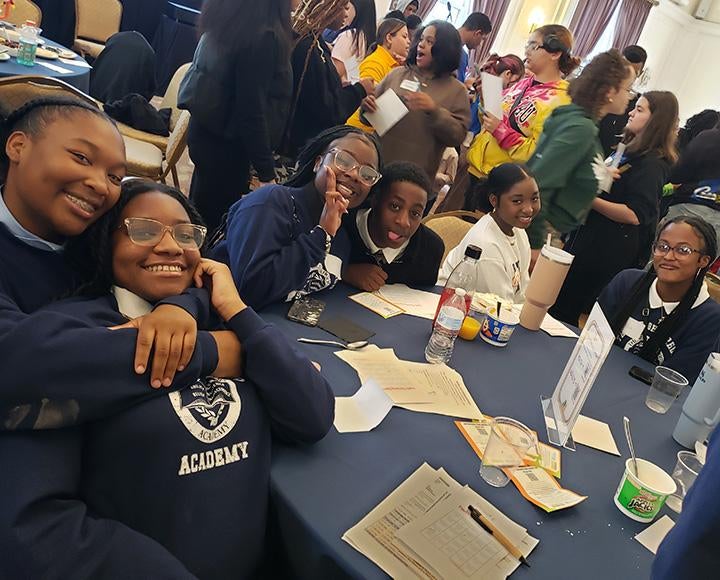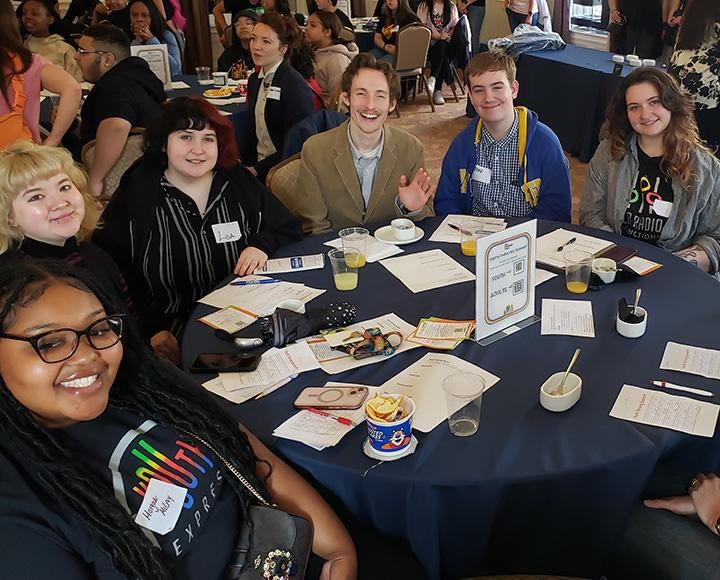
Subscribe to Pittwire Today
Get the most interesting and important stories from the University of Pittsburgh.A group of University of Pittsburgh and UPMC Children’s Hospital researchers have spent years working on The Pittsburgh Study (TPS) initiatives to improve child health equity — all with the goal of strengthening study participation and community trust in medical institutions.
The National Institutes of Health (NIH) recognized those efforts, awarding TPS an honorable mention in the Build UP Trust Challenge for its work on youth leadership and data literacy programming.
The Build Up Trust Challenge, launched in 2023, aims to address health disparities in marginalized communities by identifying effective community engagement strategies and interventions. The NIH will award up to $1.25 million, with finalists and honorable mentions eligible to compete for one of up to four prizes of up to $200,000 during the challenge’s second phase, when participants can put their interventions to the test.
TPS aims to mitigate the deep-rooted mistrust in medical institutions among minority populations. According to Elizabeth Miller, Pitt’s Edmund R. McCluskey Chair in Pediatric Medical Education and TPS co-lead, that mistrust is “incredibly well-deserved because of the history of racism and marginalization embedded in our practice of medicine.”
To earn it back, researchers are starting with consistent and transparent engagement in the community, Miller said.
“The mistrust is really our problem as health professionals, our problem as researchers, and what happens when we put the lens back on ourselves to say, ‘What are the strategies we need to do to build our trustworthiness?’” Miller said. “Trustworthiness has to be earned.”
TPS is part of a broader UPMC effort to address social and structural inequities highlighted by the COVID-19 pandemic. By building trust and promoting data literacy, the researchers aim to create lasting health improvements in Pittsburgh's most vulnerable communities.


Through the initiative, researchers have worked directly with Pittsburgh schools, residents and community organizations — including the Boys and Girls Club of Western Pennsylvania, Operation Better Block and East Hills Family Support Center — to host data literacy workshops, youth violence interventions, professional development opportunities and other activities to promote trust in scientific and health care systems.
One of the most recent events, April’s Youth Thriving Summit, focused on empowering youth working to resolve issues in their communities, including gun violence and climate change.
Jamil Bey, director of Pittsburgh’s Department of City Planning and TPS director of research, said this improved knowledge of data can create a snowball effect of positive changes in marginalized communities, resulting in data justice
Additionally, data justice empowers participants in these programs, Bey said.
“People who we know have been advocates, with the power of having data tools in their hands, they are now better able to do their work,” Bey said. “Data justice empowers them to be self-advocates, and then community advocates.”
In the long term, TPS researchers hope to set a new standard for how research is conducted in partnership with communities. Their goal is to make returning data to participants a routine practice, ensuring findings are used to benefit those who contributed to the research, co-lead Miller said.
"Community members say, ‘TPS is different because we feel respected,’” Miller said. “‘We feel like we have something to share, to give, to be a part of.’”
— Donovan Harrell, top photo by Tom Altany


